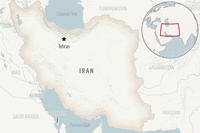Gen. Lloyd Austin, head of the U.S. Central Command, outlined his "Iraq first" strategy Friday for defeating the Islamic State of Iraq and Syria while sidestepping whether the White House had rejected his recommendation for U.S. ground troops to call in airstrikes.
"My job is to assess the situation and provide my best advice," Austin said when asked if he favored using Special Forces teams on the ground to guide airstrikes. "I won't cover recommendations I would provide my boss."
It was widely reported that Austin wanted to send Special Forces teams last month with Iraqi and Kurdish forces in the recapture of the Mosul dam. The Pentagon has neither confirmed nor denied the reports.
Although the strategy was mainly focused on Iraq, Austin said that ISIS had provided too many inviting targets to ignore in their month-long attempt to take the northern Syrian town of Kobani from Kurdish militias.
"In my assessment, the enemy has made a decision to make Kobani his main effort," Austin said. "As long as he (the enemy) pours legions of forces into that area, we'll stay focused on taking them out. The more I can attrit [the enemy] there, the less I have to fight him on some other part of the battlefield."
The Kurds "have done yeoman's work in standing their ground," but it was still "highly possible" that Kobani could fall," Austin said.
However, Austin said that the main thrust of the U.S. campaign now called "Operation Inherent Resolve" was to conduct airstrikes in Iraq and train and advise the Iraqi national security forces to retake large swaths of territory north and west of Baghdad that have been lost to ISIS.
"The things that we're doing right now in Syria are being done primarily to shape the conditions in Iraq," Austin said. "Once the Iraqis are able to get a better handle on the situation inside of their country and regain control of their border, that will help to localize the problems a bit more."
The airstrikes have had a noticeable effect on ISIS tactics and ability to exercise command and control over its fighters, Austin said. He said this despite reports to the contrary as ISIS forces continue to gain ground in the face of multiple airstrikes per day.
"We're no longer seeing them move around the country in large convoys," Austin said. "Now they're mostly traveling in civilian vehicles in smaller numbers. This is hindering their ability to mass and to shift combat power." The extremists were now "afraid to assemble" and "afraid to talk on their networks," Austin said.
"We can and will get the job done, and done well" in Iraq and Syria, Austin said, but the entire effort was dependent on the Shiite population in Iraq uniting with the Sunnis against ISIS, Austin said. "It's necessary for them to reach out to the Sunnis," Austin said of the Shia community.
"It is a concern, it has always been a concern," Austin said.
-- Richard Sisk can be reached at richard.sisk@monster.com





























